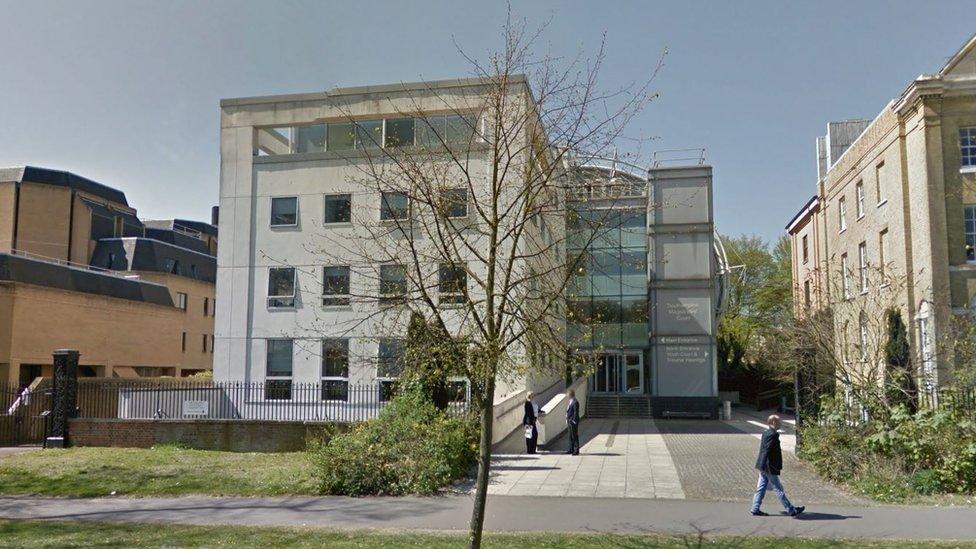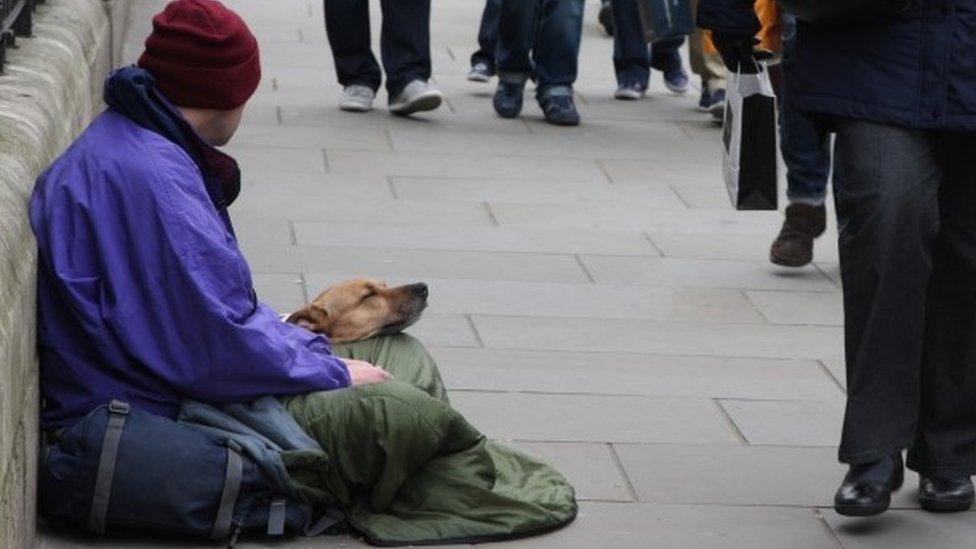Southampton begging fine man in court
- Published

The court hearing was the first for a PSPO breach for begging in Southampton
A man has appeared in court for failing to pay one of the first fines imposed for begging in Southampton.
The Public Spaces Protection Orders (PSPOs) were introduced on 29 April to five areas in the city centre.
Joseph Burns, 44, pleaded guilty to breaching the PSPO but his lawyer said he did not have sufficient funds to pay the £100 fine within 14 days.
Burns, who the court heard was not homeless, was given a 12-month conditional discharge by magistrates.
The court heard that Burns, of International Way, Southampton, was a council tenant and received about £600 a month in benefits.
Southampton Magistrates Court heard he was handed the Fixed Penalty Notice by a Police Community Support Officer on 27 August after twice being found begging on the ground floor of the Eastgate multi-storey car park.
The fine was £100 but Ms Eve Shelley, defending, said he "didn't have the funds" to pay the fine within the allotted 14 days.
She also spoke of Burns' "ongoing medical difficulties" and said he already owed money to the court on other matters.
Speaking for the City Council, Ben Attrill told the court the authority had brought in the measure because begging had become "increasingly prevalent".
The maximum fine is £1,000 but magistrates gave Burns a conditional discharge for a period of 12 months.
But he was warned, if he was caught begging in Southampton again, his sentence would be "more onerous".
Southampton City Council has issued around a dozen fines since PSPOs were introduced but this is the first case to come to court.

Public Space Protection Orders
The orders, introduced in the Anti-Social Behaviour, Crime and Policing Act (2014), give councils extra powers to deal with "detrimental" and "persistent" behaviour
Examples have included using "foul and abusive language" (Salford) or "gathering in groups of two or more persons" (Hillingdon)
Fixed penalty fines of £100 can be issued by police or council officers
Non-payment can lead to a criminal record and a fine of up to £1,000
Described as "vague" and "disproportionately punitive" by campaign group Liberty, the government has said they can deal effectively with nuisance behaviour

- Published6 December 2016
